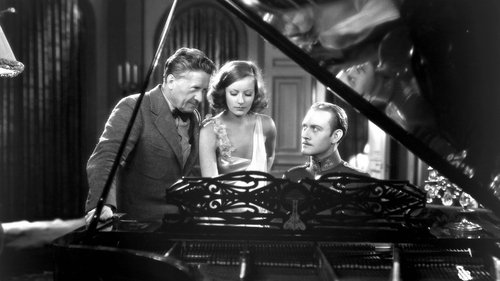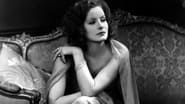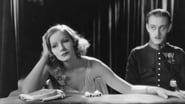Afouotos
Although it has its amusing moments, in eneral the plot does not convince.
Matylda Swan
It is a whirlwind of delight --- attractive actors, stunning couture, spectacular sets and outrageous parties.
Kimball
Exactly the movie you think it is, but not the movie you want it to be.
Scarlet
The film never slows down or bores, plunging from one harrowing sequence to the next.
rpniew
This is, quite possibly, the silent film to present to those who are resistant to silent films. First, the characters earn our affection from the very beginning -- scenes of the beautiful Garbo crying during an opera, Nagel becoming entranced by her. Within the first five minutes, you are drawn into them. Garbo becomes more beautiful as the years go by -- we see a beauty that is modern; Garbo would be considered beautiful in the 21st century, unlike many stars from the earlier days. (I mean, could Theda Bara cut it in 2009? Mary MIles Minter? Pola Negri?) Conrad Nagel plays the male lead quietly but effectively -- almost all of the acting here is restrained.Beyond the beauty of Garbo, one has to really credit Fred Niblo for directing this film. The film is essentially Hitchcock before Hitchcock. This film has elements of "North By Northwest," "The Man Who Knew Too Much," "The Thirty-nine Steps," and, most surprisingly, "Notorious." You have the "wrong man" theme, the guilty, obsessive love, the elegant, tricky villain, the conflicted heroine, Hicthcockian camera movements, some unexpected plot twists, some scenes of real suspense, and even a darkly humorous bit toward the end regarding a corpse. Very nicely done.
Gene Crokus
I don't think any silent screen female star came close to exhibiting the pure sensual sexuality Greta Garbo conveyed. I offer her role in "The Mysterious Lady" as proof of that contention. The plot is simple enough. Tania Federova (the aforementioned G. Garbo) has set up a military officer (Conrad Nagel as Captain Karl von Rader) in Vienna to gather what information she might. They have met – conveniently – at the opera, and when she shares that she has brought no money, he offers her a ride home. He is already smitten, and she agrees to see him the next day. I know it is a movie and that there are time constraints within which the writers must work, but theirs is a whirlwind affair. They are in love within hours. As Von Rader is preparing to leave for Berlin, he is told she is a spy. Their meeting on the train doesn't go well, and she steals the documents he is carrying to boot. What follows is that the Captain must clear his name due to his misfortune and we must see what will become of these two, and I'm not telling what happens. But what I would like to share is how well Garbo comes across.She was only 23 years old at the time of the film's release. But she had already the look of one much older and certainly the style of an experienced woman of the world. And the cinematography perfectly heightens her allure. There is a brief shot early in the movie when she turns out the light as she prepares to retire for the evening. She is leaning against a wall and switches off the light; the light that remains perfectly casts her in a striking pose. There are a number of nearly equal elegant shots throughout, and in my view she wore a clingy gown as well as any Hollywood actress ever did.Three Stars
MartinHafer
This is a very good silent film, though I had just watched two other Greta Garbo films that were incredibly similar to this one--as she plays the vamp in all three! I can't blame Ms. Garbo for this, as MGM definitely type-cast her despite her objections. In fact, she was so irritated by this theme that she went on strike to try to force the studio to give her different roles. But, considering that the public loved the films and they were all very successful, MGM wasn't about to mess with a tried-and-true formula. OF the three movies in the set, in THE MYSTERIOUS LADY, Garbo wasn't as evil she was in FLESH AND THE DEVIL or as nice as she was in THE TEMPTRESS. Instead, she played an initially evil spy who over the course of the film has a gradual change of heart. Considering how badly and abruptly the change of heart occurred in FLESH AND THE DEVIL, this one was much more believable and welcome.As I said above, the three films are all very derivative--all with a roughly identical theme. This one also has the added benefit of having almost the exact theme as her later film, MATA HARI. Wow--what a lot of repetition in Garbo's career. No wonder she retired so young! She was probably just sick of the "same old same old"! Now how much you like this film is probably heavily dependent on if you like this sort of theme or if you've seen Garbo films before. I, for one, hate all this repetition, but also realize that on its own this STILL is a very good movie. While not as deliciously evil and twisted as FLESH AND THE DEVIL, the overall film is much more even and satisfying since its happy ending is at least credible. And, the production values and acting are excellent--MGM really pulled out all stops to make this film.
lugonian
"The Mysterious Lady" (MGM, 1928), directed by Fred Niblo, stars the seductive Greta Garbo as Tania Federova, a woman of mystery who in reality, is a Russian spy who seduces her victims. The story opens at an opera house where Captain Karl Von Raden (Conrad Nagel) finds himself being seated next to a woman (Garbo) expecting the arrival of her cousin who never comes. After the opera, Karl notices the attractive woman he sat next to now standing on the curb in the rain. She informs him that she has no money for taxi fair, so he agrees to escort her home himself. While at her apartment, they immediately embrace and have a romantic affair. Afterwards, Karl is told by an "Uncle Eric" that his encounter with a woman he met at the opera had been pre-arranged and that she is a spy. When the two meet again on a train, Tania tells Karl she loves him, but he refuses to believe anything she says. Knowing that Karl has in his possession valuable secret plans, she decides to carry out her orders and steal them, leaving him a note that they are now enemies. Now that it is known that he had an affair with a lady spy who has taken the secret plans, Karl is met with a court-martial, stripped of his military uniform and sent to prison. After a carefully planned escape, Karl heads for Vienna posing as a musician at a Case, to avenge Tania and retrieve those secret plans.The small list of supporting players feature the sinister-looking Gustav Von Seyffertitz as General Boris Alexandroff, Tania's chief of Russian Intelligence; Edward Connolly, Albert Pollet and Richard Alexander. Interestingly, both Garbo and Von Seyffertitz would return to spy duty in 1931 in separate motion pictures: Von Seyffertitz as the head of the secret service to Marlene Dietrich's X-27 in "Dishonored" (Paramount); and Garbo starring as "Mata Hari" opposite Ramon Novarro. "The Mysterious Lady" is good, not great, silent spy melodrama with Garbo perfectly cast in the title role, looking alluring even with her wavy curly hairstyle, a few years before Garbo's transformation to her more famous long straight hair. Conrad Nagel is satisfactory as her co-star, but no threat to Garbo's more famous leading man, John Gilbert, who might have made a go in the part of Karl. While "The Mysterious Lady" was distributed to home video in 1990, accompanied by the same scoring that originated from 1973's public television presentation of "Movies-Great-Movies," hosted by Richard Schickel on WNET, Channel 13, in New York City that commemorated MGM's fiftieth anniversary, Turner Classic Movies premiered this silent melodrama June 5, 2002 (not a world television premiere as host Robert Osborne announced), accompanied by an all-new soundtrack conducted by Vivek Maddana. Although the new score is at times satisfactory, I feel that it is totally unnecessary to score a silent movie that has been scored already, especially when the old score succeeds in setting the mood and pace to the story. With the setting of "The Mysterious Lady" taking place in Vienna, the new Maddana score sometimes gives the impression that the story takes place in Venice, Italy. When premiered on New York television October 5, 1973, THE MYSTERIOUS LADY was clocked at 98 minutes. The TCM print currently shows at 89 minutes. After watching "The Mysterious Lady," for the first time in many years, this seldom seen Garbo silent melodrama is just the way I remember it. (***)












